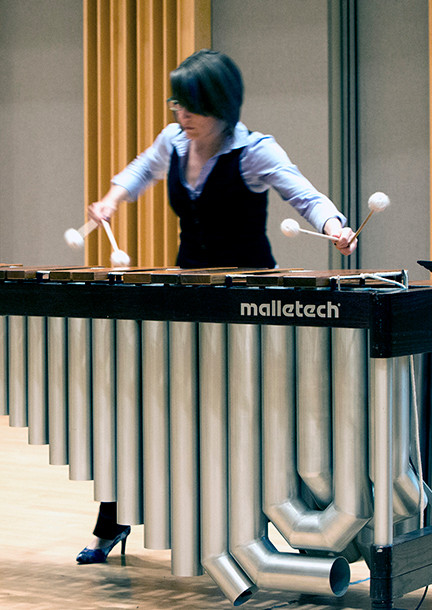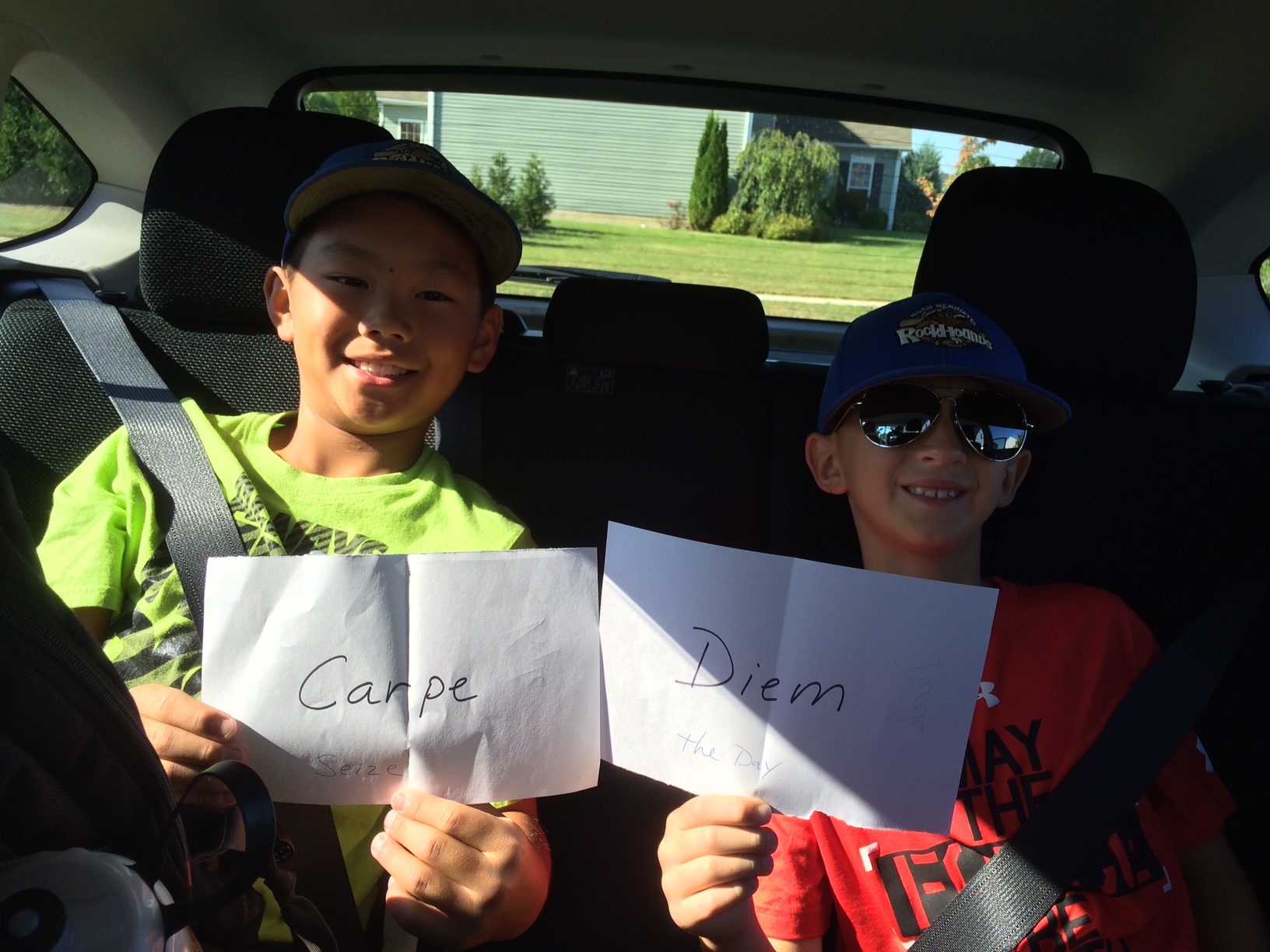“What? WHAT THE F*CK?!”
This is not a good way to start the day. Shuffling into the kitchen, putting on the kettle, flipping on the morning news—this is routine.
The news flickers on and the announcer prefaces an upcoming clip about an officer-related fatal shooting of a black man. This is becoming routine. A horrifying, disgusting routine, worthy of early-morning cursing.
But that alone is not the reason. The broadcast was unsurprising (that itself horrifying and disgusting) only because I assumed it was continued coverage of the most recent example from about 36 hours earlier.
The reason I yelled, “What? WHAT THE F*CK?!” with the kettle in-hand is because the broadcast was about a new fatal encounter—the second within as many days—between a black man and the police. This time, Philando Castile was shot four times in his car with his girlfriend and a child also inside. During a traffic stop. For a broken tail light. As he was reaching for his identification, as instructed. After responsibly announcing that he had a pistol-permit for concealed-carry.
What? WHAT THE F*CK?!
Being born white has automatically dramatically reduced, if not eliminated, the chance that I would die in this manner. But it does not insulate me from the horror.
Philando Castile. Alton Sterling. Michael Brown. Tamir Rice. Freddie Gray. Sandra Bland. Walter Scott. Akai Gurley. Eric Garner. Eric Harris. Anthony Hill. Amadou Diallo.
This is an incomplete, hastily assembled list. Less than five minutes of Googling.
Almost 25 years ago, when I was a freshman in college, the verdict of “Not Guilty” came back for the officers involved in what was probably the first instance of a widely disseminated filming of a police assault on a black man. Surely there had been many, many other instances, but never before was it documented on film and played on the news over and over.
Riots ensued, paralyzing parts of Los Angeles for six days. Almost 3,000 miles away I watched on a 13 inch black and white television.
The images on a little black and white T.V. underscored my naiveté. Rodney King appealed for calm before a bouquet of media microphones, “Can we all just get along?”
And I thought, “Yeah, can we all just get along?”
A couple of years later on the same college campus, one of the members of the group of friends I moved among was (is) a black male. We knew it was not uncommon for him to have a local police cruiser roll up and begin questioning him about his comings and goings. On the campus. Whereas it was obvious he was a student.
This same young man was the only member of a raucous party of about dozen students (the rest of us white) having a late night diner snack to be singled out by the manager, who then threatened to throw him out of the restaurant. The only one. And he wasn’t even one of the rowdy instigators.
We, those among his acquaintances and friends, were appalled. Memory vaguely tells me that someone in our group questioned the restaurant manager on why this one person was singled out, making it clear this was NOT OKAY with us.
Other than that, we did nothing. It is questionable whether I should even claim this story (his) as part of my life narrative.
Did we not think anything more needed to be done? Did we naively think our generation was immune, evolved, and the leaders of a post-racial America?
The year I graduated college, the movie Higher Learning came out. It was a slick MTV-meets-After School Special story covering racism, neo-Nazism, date rape, sexuality, and a mass school-shooting. Writer-Director John Singleton made Boyz N the Hood, and he recently shared a director credit for The People vs. OJ Simpson.
Higher Learning gave a structure to the first internal stirrings that made me comprehend that institutional racism was (is) alive and well. To say that Singleton was prescient would be insulting to him. A revelation to me (young, white, and college-educated) does not mean a revelation to generations of African Americans who already knew that institutional racism was dug in and not going anywhere.
What did I do with this realization? Not much.
When people close to me used racial epithets in casual conversation, I spoke up and said I didn’t care for the use of those derogatory words in my presence (or at all). When The Husband and I bought our home, we made a rule that those words were not allowed to be spoken in our house.
As recently as within the last month I’ve called out the usage of such language.
But other than that, I’ve done nothing.
Admittedly, I have few social connections to African Americans, or persons in any racial or social minority. To be clear, I don’t seek or need accolades for my meager personal choice to “not tolerate racial epithets in my presence,” or need comforting for my current state of horror and distress.
The thing is, I just don’t know what to do that can contribute to making a difference.
I have friends, neighbors, and acquaintances in law enforcement, and family members with long careers in emergency response. I live a mile from the border of a city that suffered a high-profile in-the-line-of-duty killing of a police officer.
The death of that policeman was horrible. An in-the-line-of-duty death, often a murder, is always horrible. So is what’s happening to black people, at such an alarmingly frequent rate. These two types of violent deaths are horrible. And are separate issues entirely. (So please do not try to engage me in a debate that distracts from this topic).
Beyond knowing this, beyond being as aware as I am of the privileges I enjoy daily from being born white, I don’t know what to do.
When an acquaintance quipped that Freddie Gray had a long rap sheet, clearly a statement in defense of how he died/was killed while in police custody, my only comment was that I didn’t understand what that had to do with anything.
These little stop-gaps are all I do.
I hear Jesse Williams’ speech after receiving the BET’s Humanitarian Award. Days later I hear a familiar riff as we listen to our Commodores Greatest Hits on vinyl. A riff so familiar to me, one that I’ve heard a thousand times waft from the speakers as a sample on one of my favorite albums. The legality of music sampling in 1989 was murky at-best, and that debate can happen elsewhere, but the fact remains that I associate the riff more with three white boys from New York City than I do with the black men, the Motown giants, who wrote the original music.
There is something wrong with that. I don’t know what precisely, but the fact deserves to exist.
Self-awareness is cheap. Being deliberate about seeing and hearing and knowing that institutional racism is all around me, and having the basic humility to realize that surely I must play some role, is a candy I get to suck on without fear of getting a cavity.
What role should any of us play, those of us living the luxury of feeling horrified with no chance of ever being threatened by the matter of the horror?
The source escapes me as I write, but something recently made me think that I should be quiet and stay on the sidelines of any movement where I am not a natural stakeholder. That maybe my voice should not take a place among the rightful voices of a movement. Unless my voice and presence is specifically requested. An idea that makes me question whether I even have a right to publish this blog post.
This line of thinking is linked to an embarrassing admission that is worth repeating: I don’t know what to do.
I will hear the words. I will ask the questions. I will vote always for equal rights. I will speak up within my social circles. I will know that institutional racism exists, and will not insist I am untouched by it.
I will hear the names. I will listen when a stakeholder tells me what I can do.

 You Got the Music in You
You Got the Music in You

Terra – your piece is so insightful, and difficult. We need to find ways that we can help improve the situations our country is in. It definitely troubles me.
Empathy matters. You ask: what role should any of us play, those of us living the luxury of feeling horrified with no chance of ever being threatened by the matter of the horror? Feeling horrified, being willing to talk about the awkward reality, it’s not the luxury. The luxury–if we embrace it– is to pretend that this problem is somehow someone else’s problem, something which belongs to people based on their career choice or the color of their skin. I think the danger is not being part of a priviledged group but deciding for whatever reason these life and death human problems are not our problems. You could have as easily, talked about the violent sub-groups which seek to define themselves as the only true believers of their billion plus religion by violently killing and torturing selected “others.” I can’t even bring myself to write Muslims here, for it has been and could as easily be said of “Christians” or “Buddhists.” White, black, male, female, Muslim, Christian, police, civilians–our human companions on this earth–our living family, they are under siege. So thank you for writing: I care; I see; I honor my family on this earth.
Thank you, Rosemary. Saying it out loud–Testifying–maybe this is a tiny start.
I share in all of your thoughts here Terra! The question has haunted me for some time too, what should I do???? Wonderful piece, I love the honesty here.
Thank you for reading. Feeling clueless about what to do is embarrassing.